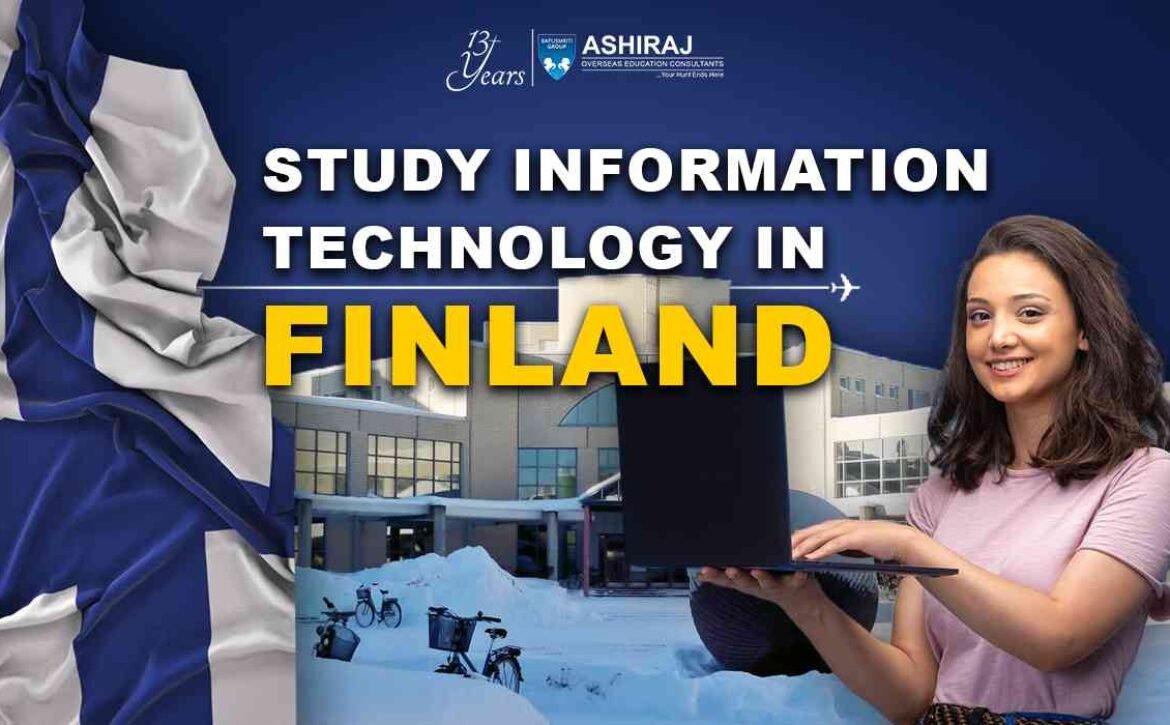
Information Technology in Finland
Finland stands at the forefront of global innovation, particularly in the realm of Information Technology (IT). With a robust infrastructure and a culture that values education and technological advancement, Finland has emerged as a leader in the IT sector. Information technology in Finland encompasses a wide range of areas including telecommunications, software development, cybersecurity, and digital services. The Finnish government has actively fostered an environment conducive to technological innovation, investing in research and development and promoting collaboration between academia, industry, and government agencies.
In recent years, Finland has gained recognition for its startup ecosystem, with Helsinki being dubbed as one of Europe’s hottest startup hubs. The country’s emphasis on digitalization has led to the proliferation of cutting-edge technologies such as artificial intelligence, IoT (Internet of Things), and blockchain. Additionally, Finland boasts a highly skilled workforce, with a strong emphasis on STEM (Science, Technology, Engineering, and Mathematics) education. As a result, multinational corporations and tech giants have established a presence in Finland, further fueling the growth of the IT industry in the country. Information technology in Finland continues to drive economic growth, innovation, and societal progress, positioning the nation as a key player in the global tech landscape.
Why to Study Information Technology in Finland?
- Innovative Environment: Finland is renowned for its innovative culture, making it an ideal destination for studying information technology. The country’s commitment to technological advancement ensures exposure to cutting-edge concepts and practices.
- Top-notch Education: Finnish universities consistently rank among the best in the world, offering high-quality education in information technology. Students benefit from comprehensive curricula, world-class faculty, and state-of-the-art facilities.
- Vibrant Startup Scene: Finland boasts a thriving startup ecosystem, particularly in the IT sector. Studying in Finland provides opportunities to engage with startups, gain practical experience, and even launch one’s venture.
- Industry Collaboration: Finnish universities foster strong ties with the IT industry, facilitating internships, research collaborations, and employment opportunities. Students can gain valuable industry insights and establish professional networks.
- Multicultural Experience: Finland welcomes students from diverse backgrounds, fostering a multicultural learning environment. Studying alongside peers from around the world enhances cultural understanding and promotes global perspectives.
- Job Opportunities: With its booming IT industry, Finland offers abundant job opportunities for information technology graduates. The country’s strong economy and high demand for tech talent make it an attractive destination for career development.
- Quality of Life: Finland consistently ranks high in terms of quality of life, offering a safe, clean, and inclusive environment for students. From vibrant cities to breathtaking natural landscapes, Finland provides an exceptional living experience.
Studying information technology in Finland provides a unique opportunity to immerse oneself in a dynamic, forward-thinking environment, shaping the future of technology while enjoying an enriching academic and cultural experience.
Top Universities to Study Information Technology in Finland
Rank | University | QS World University Ranking 2023 | Type of University | Average Annual Fees | Programs Offered |
1 | University of Helsinki | 67 | Public | €0 – €13,000 | Computer Science, IT Management |
2 | Aalto University | 128 | Public | €0 – €15,000 | Information Networks, Software Engineering |
3 | University of Oulu | 301-350 | Public | €0 – €12,000 | Information Technology, Data Science |
4 | Tampere University | 401-450 | Public | €0 – €10,000 | Cyber Security, Digital Health |
5 | University of Turku | 501-550 | Public | €0 – €14,000 | Information Systems, Digital Futures |
When considering pursuing studies in information technology in Finland, it’s crucial to explore the top universities offering relevant programs. The table above showcases the top 5 universities in Finland for information technology based on the QS World University Rankings 2023. These institutions provide a diverse range of programs tailored to meet the demands of the rapidly evolving IT industry. From computer science to digital health, students have the opportunity to specialize in various domains according to their interests and career aspirations. Moreover, Finland’s public universities offer affordable tuition fees, making education accessible to a wide range of students. Whether one aims to delve into software engineering or data science, studying information technology in Finland provides a solid foundation for a successful career in the tech sector.
Course Curriculum for Information Technology in Finland
- Cutting-edge Technologies: The course curriculum of Information Technology in Finland is designed to encompass the latest advancements in the field, including artificial intelligence, machine learning, and blockchain technology.
- Practical Learning: Students engage in hands-on projects and real-world case studies, allowing them to apply theoretical knowledge to practical scenarios and develop essential problem-solving skills.
- Interdisciplinary Approach: The curriculum integrates elements from various disciplines such as computer science, mathematics, and engineering, providing students with a holistic understanding of Information Technology.
- Industry Collaboration: Collaboration with industry partners is a key component of the curriculum, enabling students to gain insights into industry trends, challenges, and best practices through guest lectures, internships, and industry-sponsored projects.
- Global Perspective: The curriculum emphasizes global perspectives, encouraging students to explore the impact of Information Technology on a global scale and fostering cross-cultural understanding and collaboration.
- Flexibility and Customization: Students have the flexibility to tailor their course curriculum according to their interests and career goals, with options to specialize in areas such as cybersecurity, data science, or software development.
- Ethical and Social Implications: The curriculum addresses the ethical and social implications of Information Technology, equipping students with the knowledge and skills to navigate complex ethical dilemmas and contribute positively to society.
- Research Opportunities: Students have access to research opportunities within academic institutions and industry, enabling them to contribute to cutting-edge research projects and innovations in Information Technology.
Eligibility Criteria & Admission Requirements for MS in Information Technology in Finland
- Language Proficiency: Applicants must demonstrate proficiency in English by providing valid IELTS or TOEFL scores. A minimum score of 6.5 in IELTS or 79 in TOEFL is typically required.
- Standardized Tests: Depending on the university’s requirements, applicants may need to submit GRE or GMAT scores. A competitive score in either test is usually expected, with specific minimum score requirements varying by institution.
- Academic Background: Applicants should hold a relevant undergraduate degree in fields such as computer science, information technology, engineering, or a related discipline from an accredited institution.
- Passport & Student Visa: International students must possess a valid passport and obtain a student visa to study in Finland. The visa application process may vary depending on the applicant’s country of origin.
- Academic Certificates: Applicants must submit certified copies of their academic transcripts and certificates, demonstrating their academic achievements and qualifications.
- Work Experience: While not always mandatory, some universities may prefer applicants with relevant work experience in the field of information technology. Work experience can strengthen an applicant’s profile and demonstrate practical knowledge and skills.
Test | Minimum Score |
IELTS | 6.5 |
TOEFL | 79 |
GRE | Varies |
GMAT | Varies |
Meeting the eligibility criteria is essential for prospective students wishing to pursue studies in Information Technology in Finland. By fulfilling these requirements, applicants can enhance their chances of gaining admission to top Finnish universities and embarking on a rewarding academic journey in one of Europe’s leading IT hubs.
Documents Required for Studying Information Technology in Finland
- Passport: A valid passport is essential for international students applying to study Information Technology in Finland. Ensure that your passport is current and will remain valid throughout your intended period of study.
- Letters of Recommendation (LOR): Most universities require two letters of recommendation from academic or professional referees who can attest to your skills, abilities, and suitability for the program.
- Statement of Purpose (SOP): The SOP is a personal statement outlining your academic background, career goals, and reasons for choosing to study Information Technology in Finland. It provides insights into your motivations and aspirations.
- Curriculum Vitae (CV): A detailed CV highlighting your educational qualifications, work experience, skills, achievements, and extracurricular activities is required as part of the application process.
- Official Transcripts and Educational Certificates: Submit official transcripts and educational certificates from all previous academic institutions attended, demonstrating your academic achievements and qualifications.
- Work Experience Certificate: If applicable, provide a work experience certificate detailing your professional experience in the field of Information Technology.
- Proof of Financial Resources: Demonstrate sufficient financial resources to cover tuition fees, living expenses, and other costs associated with studying and living in Finland. This may include bank statements, scholarship letters, or sponsorship letters.
Gathering these documents is crucial for a successful application to study Information Technology in Finland. Ensure that all documents are accurate, complete, and submitted within the specified deadlines to maximize your chances of admission.
Admission Process for Information Technology in Finland
- Research Universities: Explore universities in Finland offering programs in Information Technology. Consider factors such as reputation, curriculum, faculty, and facilities.
- Check Eligibility: Review the admission requirements for your chosen universities. Ensure you meet the criteria regarding academic qualifications, language proficiency, and standardized test scores.
- Prepare Documents: Gather required documents including academic transcripts, certificates, language test scores (IELTS/TOEFL), CV, SOP, LORs, passport, and proof of financial resources.
- Submit Application: Complete the online application form for your selected universities. Upload all necessary documents and pay the application fee, if applicable.
- Wait for a Response: After submitting your application, wait for a response from the university. This may take several weeks. Monitor your email for updates or check the application portal regularly.
- Interview (if required): Some universities may conduct interviews as part of the selection process. Prepare thoroughly and showcase your interest and suitability for the program.
- Receive Offer: If successful, you will receive an offer of admission from the university. Review the offer carefully, including any conditions or deadlines.
- Accept Offer and Apply for Visa: Accept the offer and follow the instructions for accepting your place. Apply for a student visa from the Finnish embassy or consulate in your country.
- Arrive in Finland: Once your visa is approved, make travel arrangements to Finland. Attend orientation sessions provided by the university and begin your studies in Information Technology in Finland.
Following these steps will help streamline the admission process for studying Information Technology in Finland, allowing you to embark on a rewarding academic journey in a leading tech hub.
“Education is the most powerful weapon which you can use to change the world.”
Nelson Mandela
Cost of Information Technology Course in Finland
- Tuition Fees: Finnish universities offer tuition-free education for EU/EEA students and international students are required to pay tuition fees. The average annual tuition fees for Information Technology programs in Finland range from €0 to €15,000, depending on the university and program.
- Living Expenses: The cost of living in Finland varies depending on the city and lifestyle. On average, students should budget approximately €700 to €1,000 per month to cover accommodation, food, transportation, and other personal expenses.
- Accommodation: Accommodation options in Finland include student dormitories, shared apartments, and private studios. Costs range from €250 to €600 per month, with shared accommodation being more affordable.
- Healthcare Insurance: International students are required to have health insurance while studying in Finland. The cost of health insurance varies but is typically around €50 to €100 per month.
- Books and Supplies: Students should budget for books, stationery, and other study materials. The cost of books and supplies varies depending on the program but is generally around €500 to €1,000 per year.
Overall, the cost of studying Information Technology in Finland can vary depending on various factors, but with careful planning and budgeting, students can manage their expenses effectively while pursuing their academic goals in one of Europe’s leading tech hubs.
Scholarships for Information Technology Courses in Finland
Scholarship Name | Eligibility Criteria | Amount | Application Deadline |
Aalto University Scholarships | Open to international students applying to Aalto University for Information Technology programs. | Varies | January 15th |
University of Helsinki Scholarship | Available for non-EU/EEA students applying to master’s programs in Information Technology at the University of Helsinki. | Full or Partial Tuition Waiver | January 10th |
EDUFI Fellowship | For doctoral studies in Information Technology in Finland. | €1,500 to €2,300 per month | Rolling basis |
CIMO Scholarship | For students from developing countries pursuing bachelor’s, master’s, or doctoral degrees in Information Technology in Finland. | Varies | March 31st |
Finnish Government Scholarship | Open to students from specific countries for doctoral studies or research visits in Information Technology in Finland. | €1,500 to €2,300 per month | December 31st |
Scholarships play a crucial role in supporting students pursuing Information Technology in Finland. The table above highlights some of the scholarships available to international students, offering financial assistance to cover tuition fees, living expenses, and research costs. Applicants should carefully review the eligibility criteria and application deadlines for each scholarship to maximize their chances of securing funding for their studies. With various scholarship opportunities available, students can alleviate the financial burden associated with studying in one of Europe’s leading tech hubs and focus on their academic and professional development in the field of Information Technology.
Career Opportunities After Information Technology in Finland
Job Profile | Description | Average Salary (EUR) |
Software Developer | Design, develop, and maintain software applications. | €45,000 – €60,000 |
Data Scientist | Analyze large datasets to extract valuable insights and trends. | €50,000 – €70,000 |
IT Project Manager | Oversee the planning, execution, and delivery of IT projects. | €55,000 – €70,000 |
Cybersecurity Analyst | Monitor, detect, and respond to security threats and vulnerabilities. | €50,000 – €65,000 |
Systems Analyst | Analyze and design IT systems to meet organizational needs. | €45,000 – €60,000 |
Information technology in Finland offers a plethora of career opportunities for skilled professionals. The table above highlights some of the common job profiles in the IT sector along with their job descriptions and average salaries. From software development to cybersecurity, professionals in Finland’s IT industry are well-compensated for their expertise and contributions. With a strong emphasis on innovation and technology, Finland provides an ideal environment for IT professionals to thrive and advance in their careers. Whether one specializes in software development, data science, or cybersecurity, the IT job market in Finland offers rewarding opportunities for individuals looking to make an impact in the ever-evolving field of information technology.
Frequently Asked Questions About Information Technology in Finland
Some of the top universities in Finland offering Information Technology programs include Aalto University, University of Helsinki, University of Oulu, Tampere University, and University of Turku.
Yes, there are several scholarships available for international students pursuing Information Technology programs in Finland, offered by universities, the Finnish government, and other organizations.
The average tuition fee for Information Technology programs in Finland varies depending on the university and program, ranging from €0 to €15,000 per year for international students.
While knowledge of Finnish language is not mandatory for studying Information Technology in Finland, it may be beneficial for daily life. Many programs are offered in English to accommodate international students.
Graduates of Information Technology programs in Finland have a wide range of career opportunities, including roles as software developers, data scientists, IT project managers, cybersecurity analysts, and systems analysts.
The duration of a Master’s degree in Information Technology in Finland typically ranges from 1.5 to 2 years, depending on the program and university.
Yes, Finland has a growing IT sector with a high demand for skilled professionals. International students with relevant qualifications and skills can find job opportunities in various IT companies and organizations.
Admission requirements for Information Technology programs in Finland usually include a relevant bachelor’s degree, language proficiency (English), standardized test scores (such as IELTS/TOEFL or GRE/GMAT), and submission of required documents.
Yes, international students with a valid residence permit are allowed to work part-time during their studies in Finland. However, there are restrictions on the number of hours they can work per week.
Yes, Finland is considered a top destination for studying Information Technology due to its high-quality education system, innovative environment, strong IT industry, and high standard of living.




